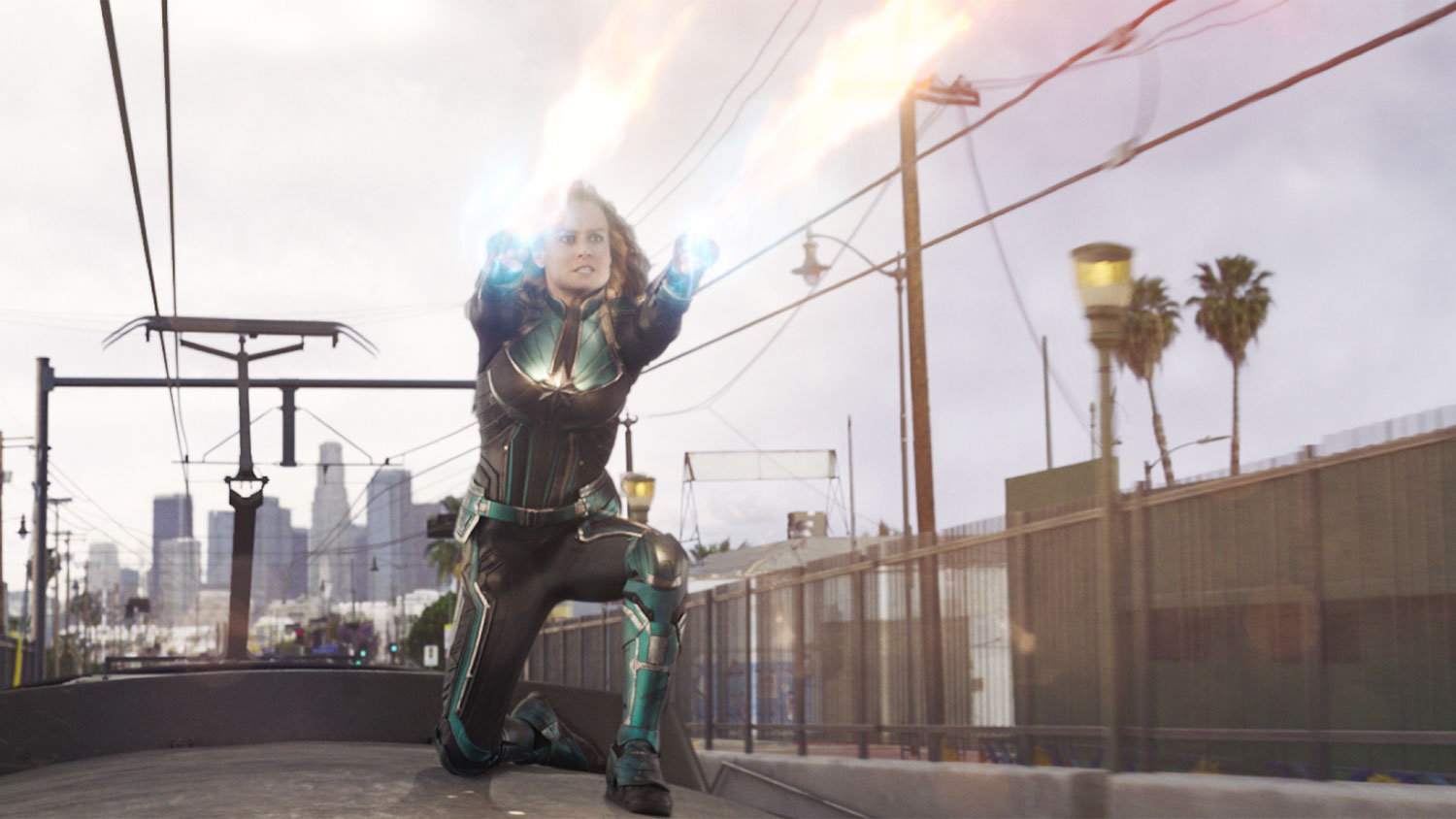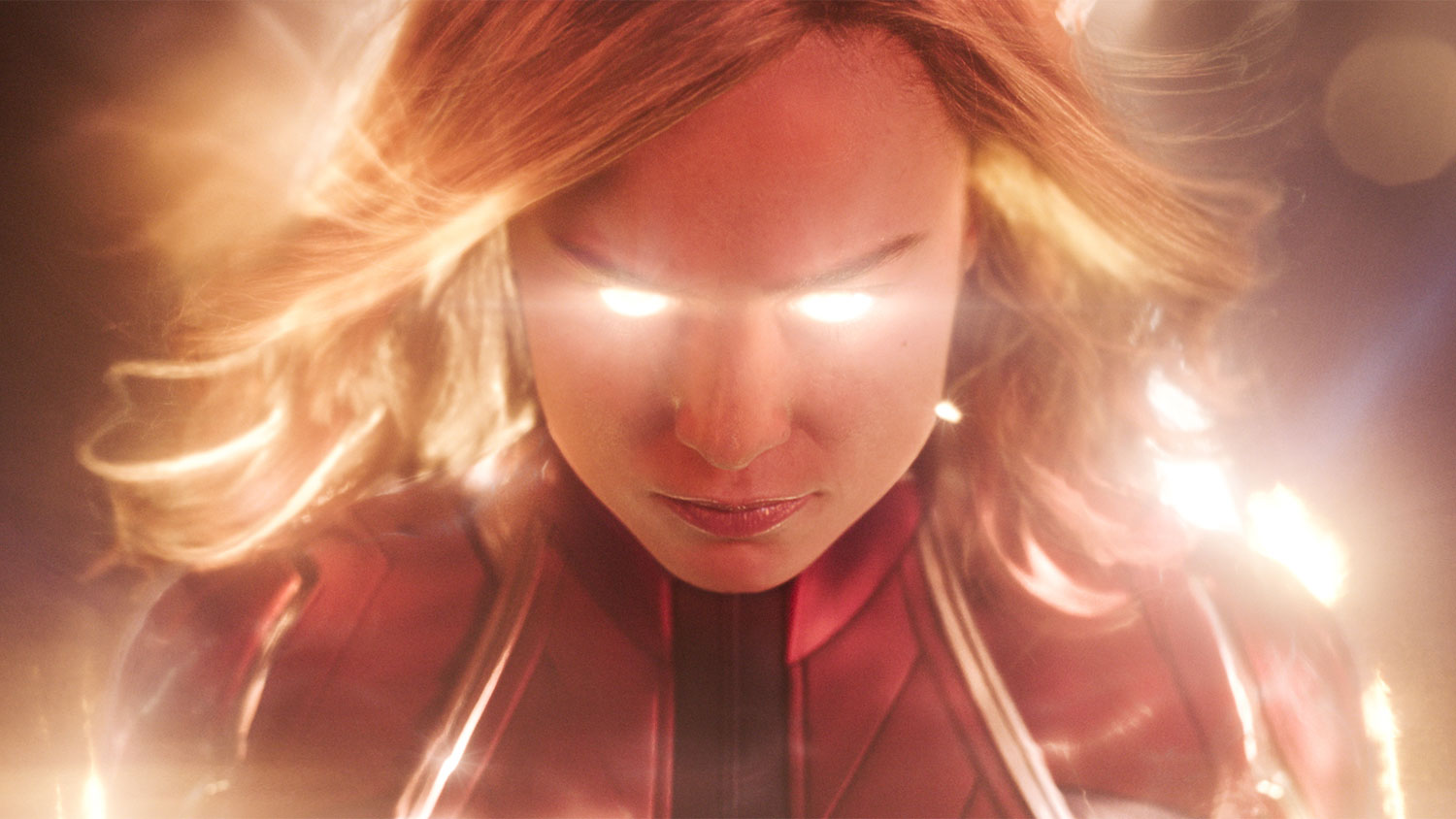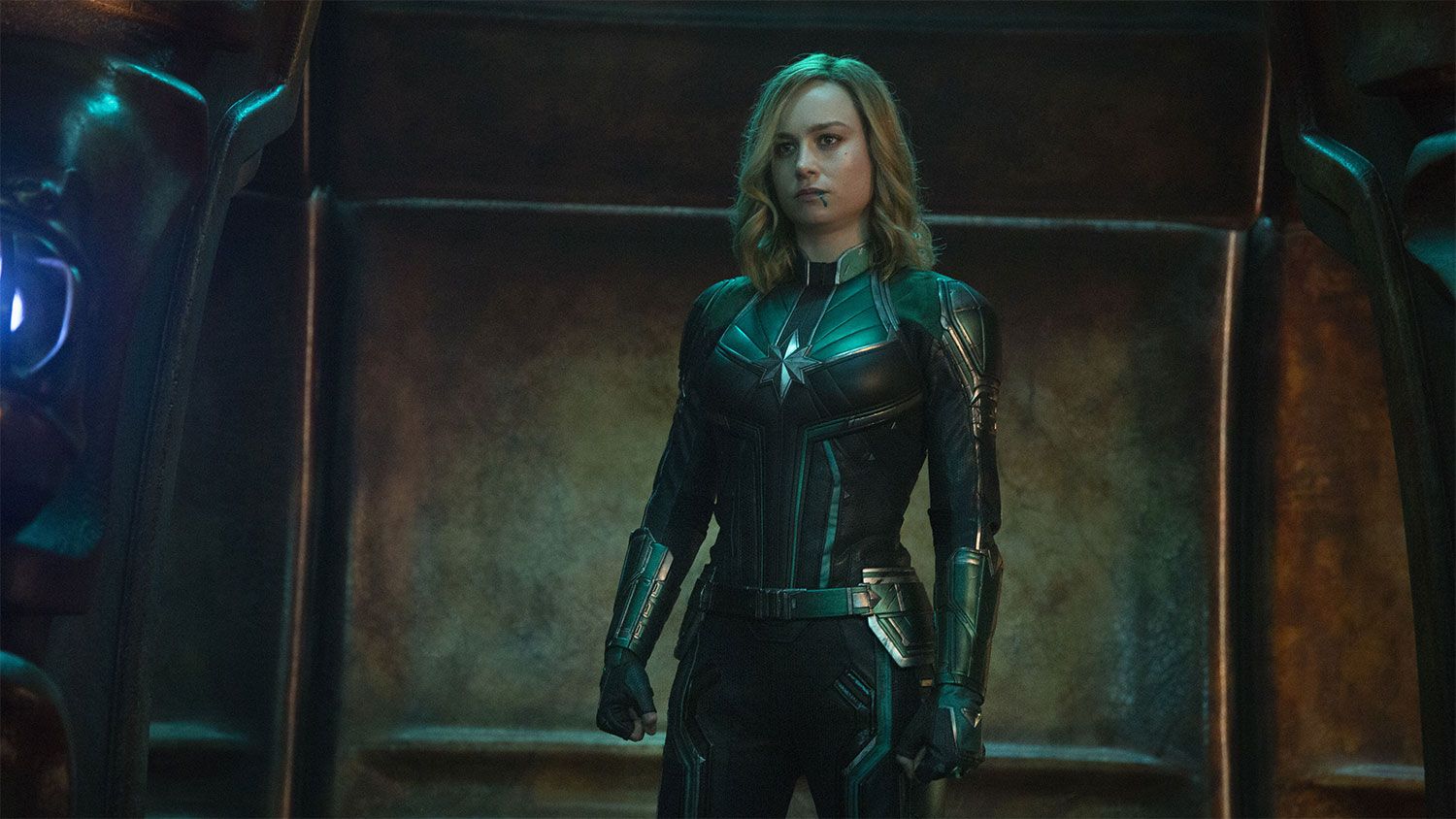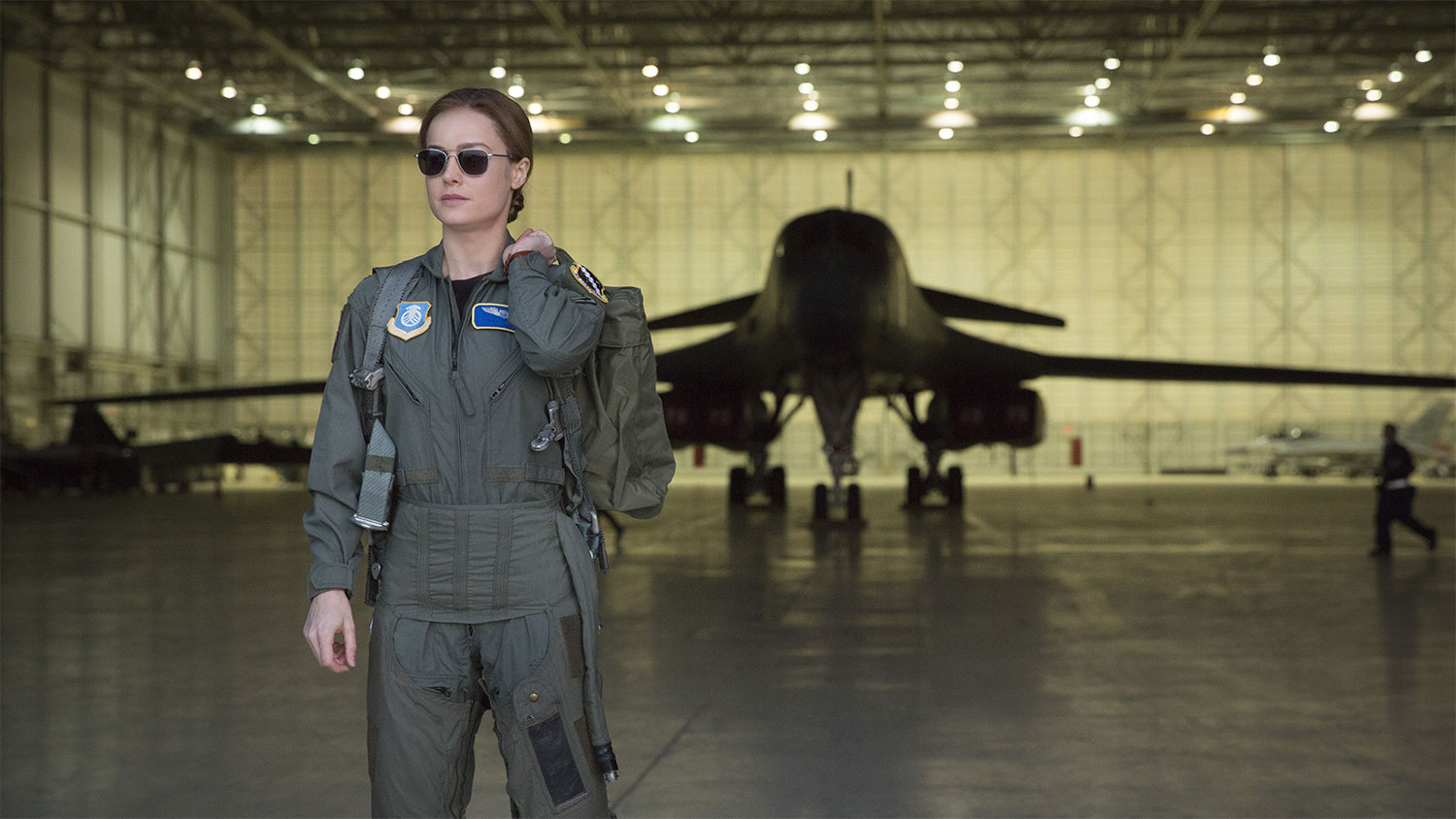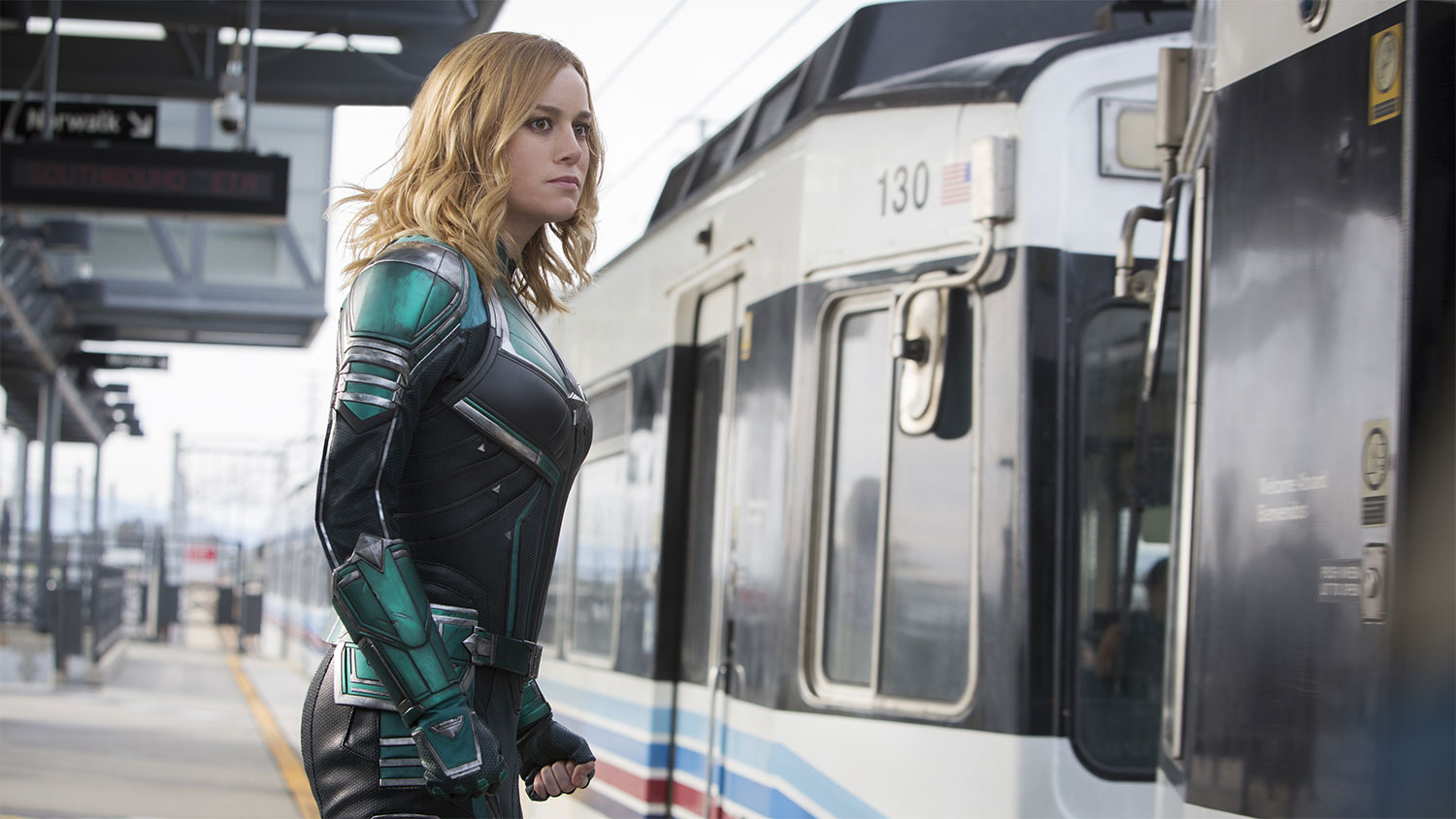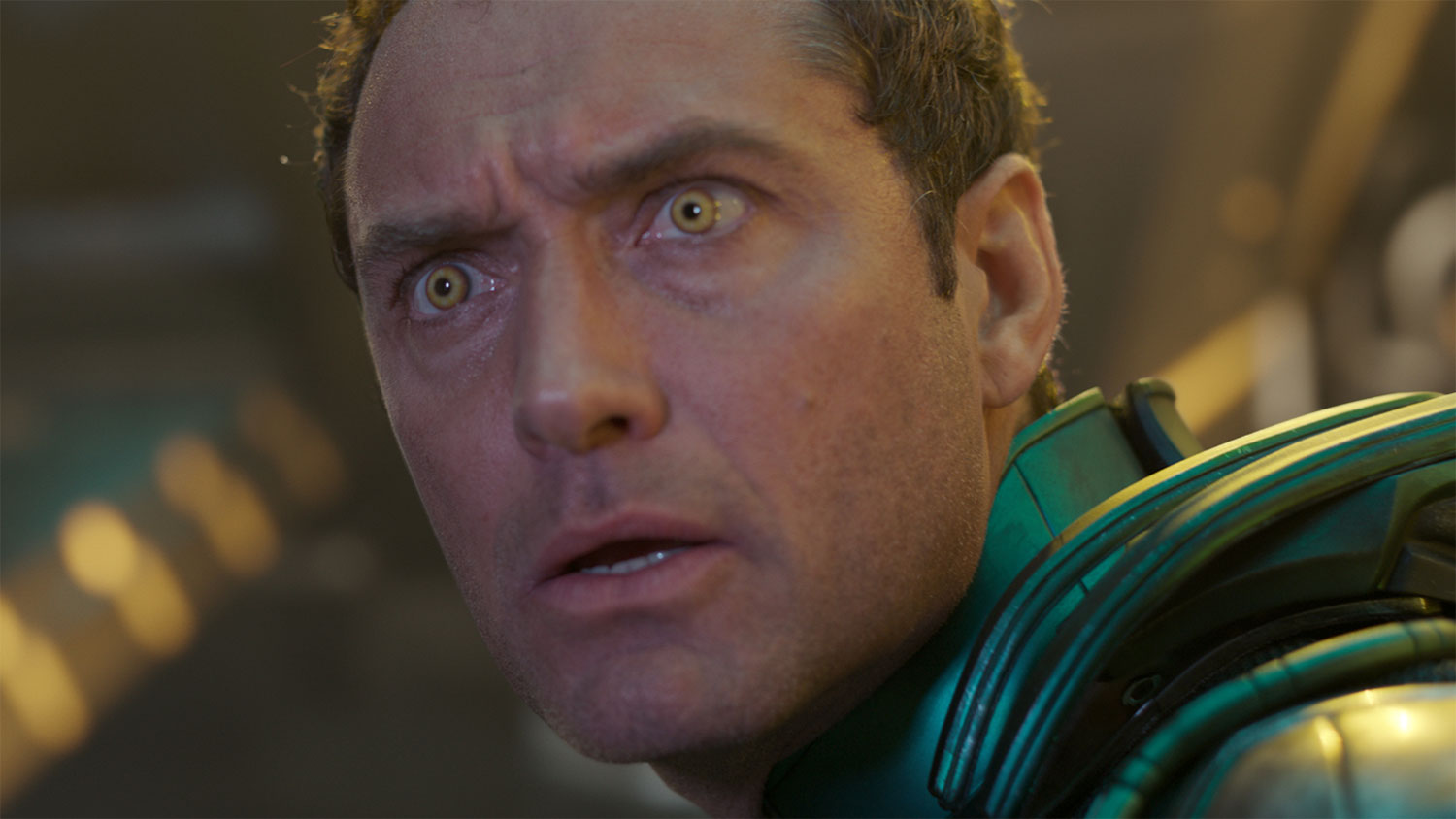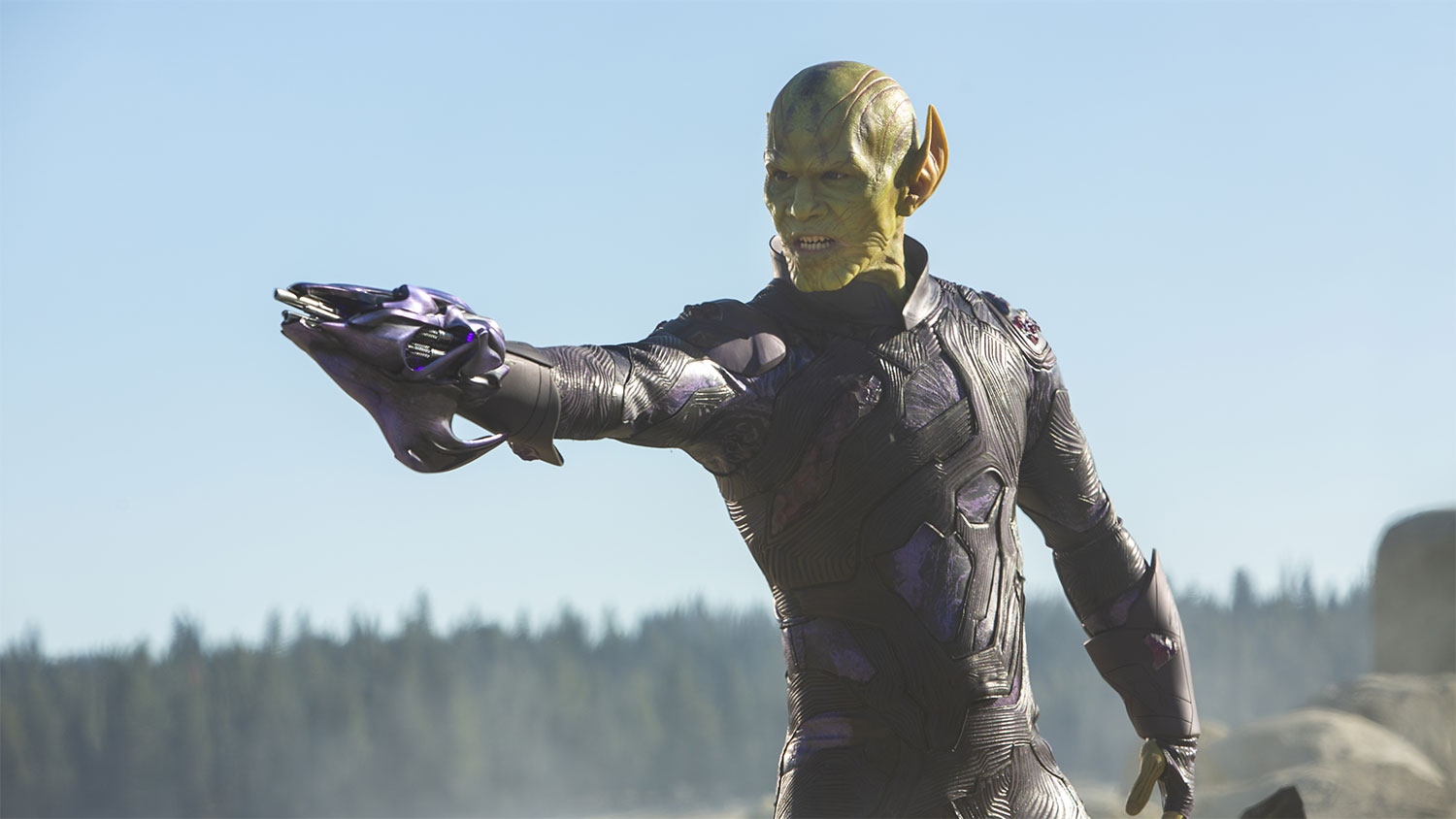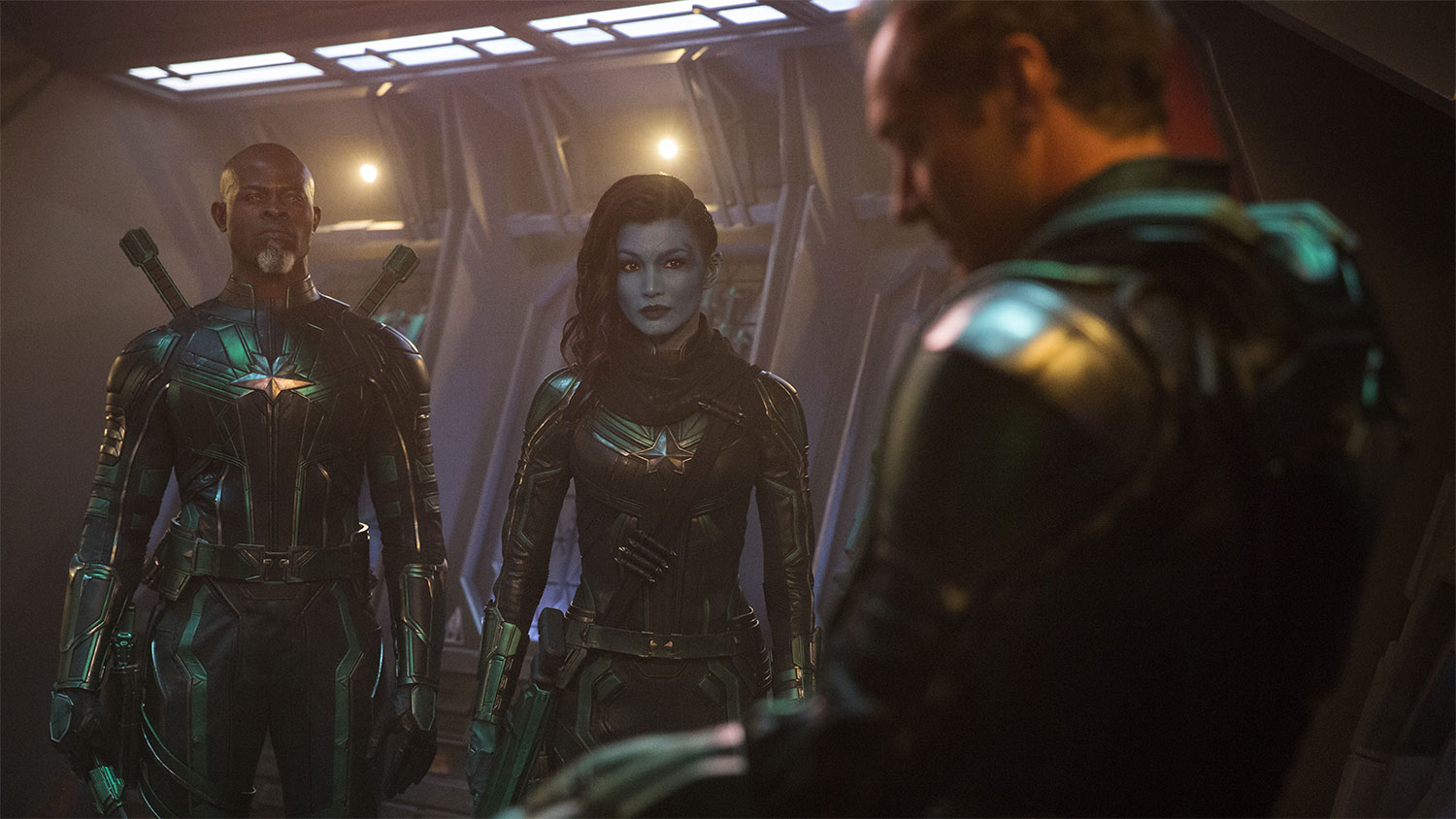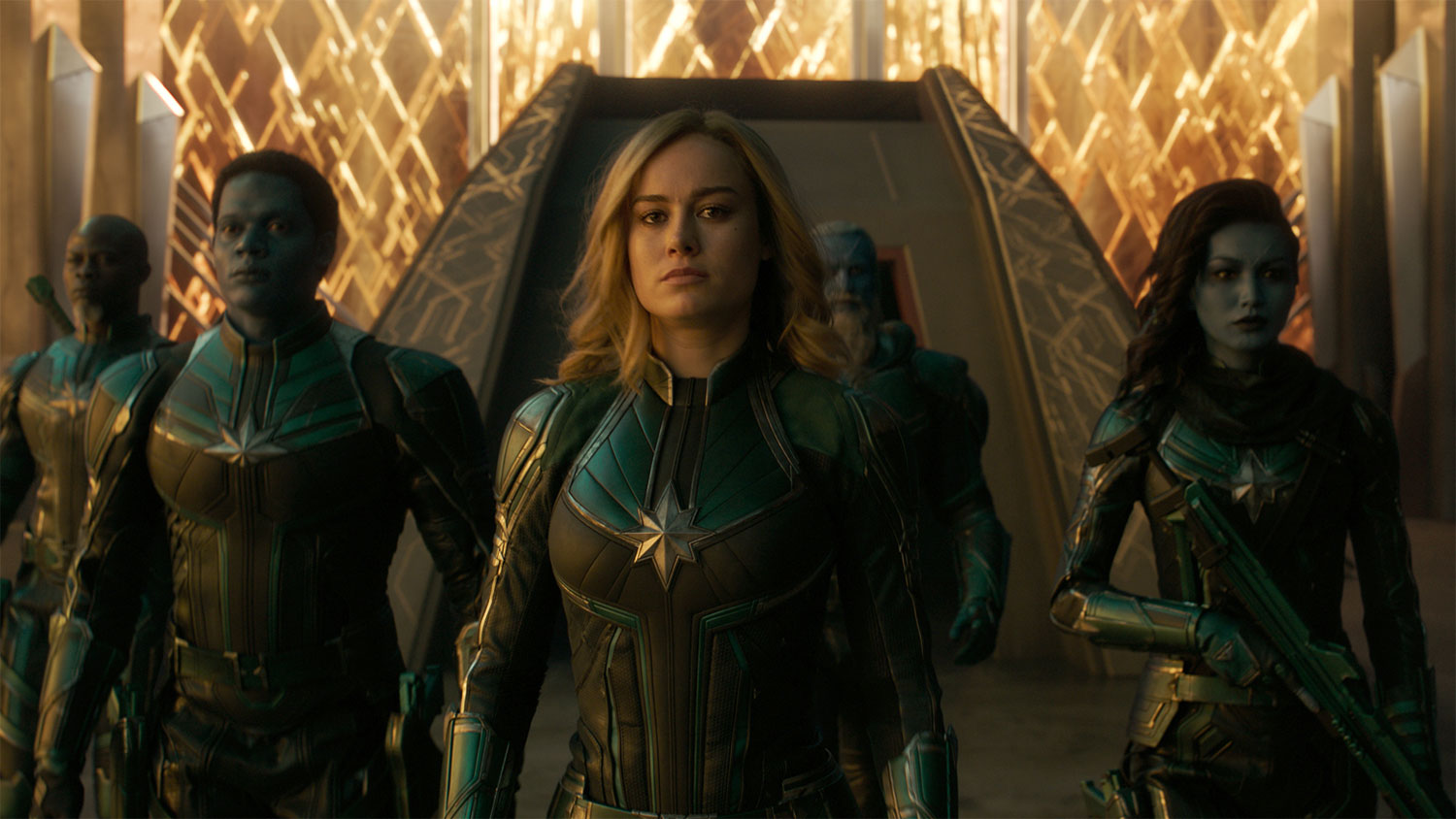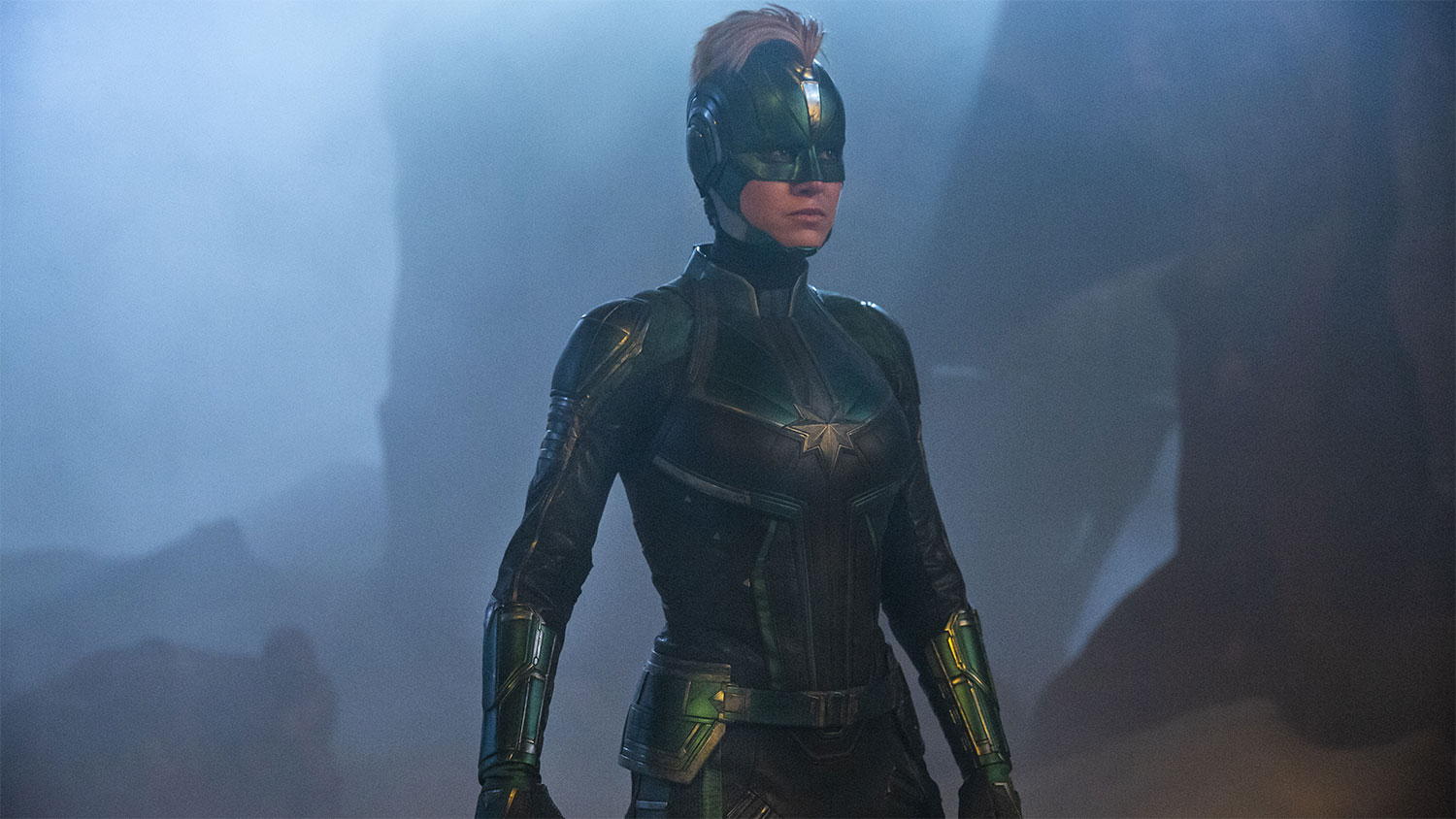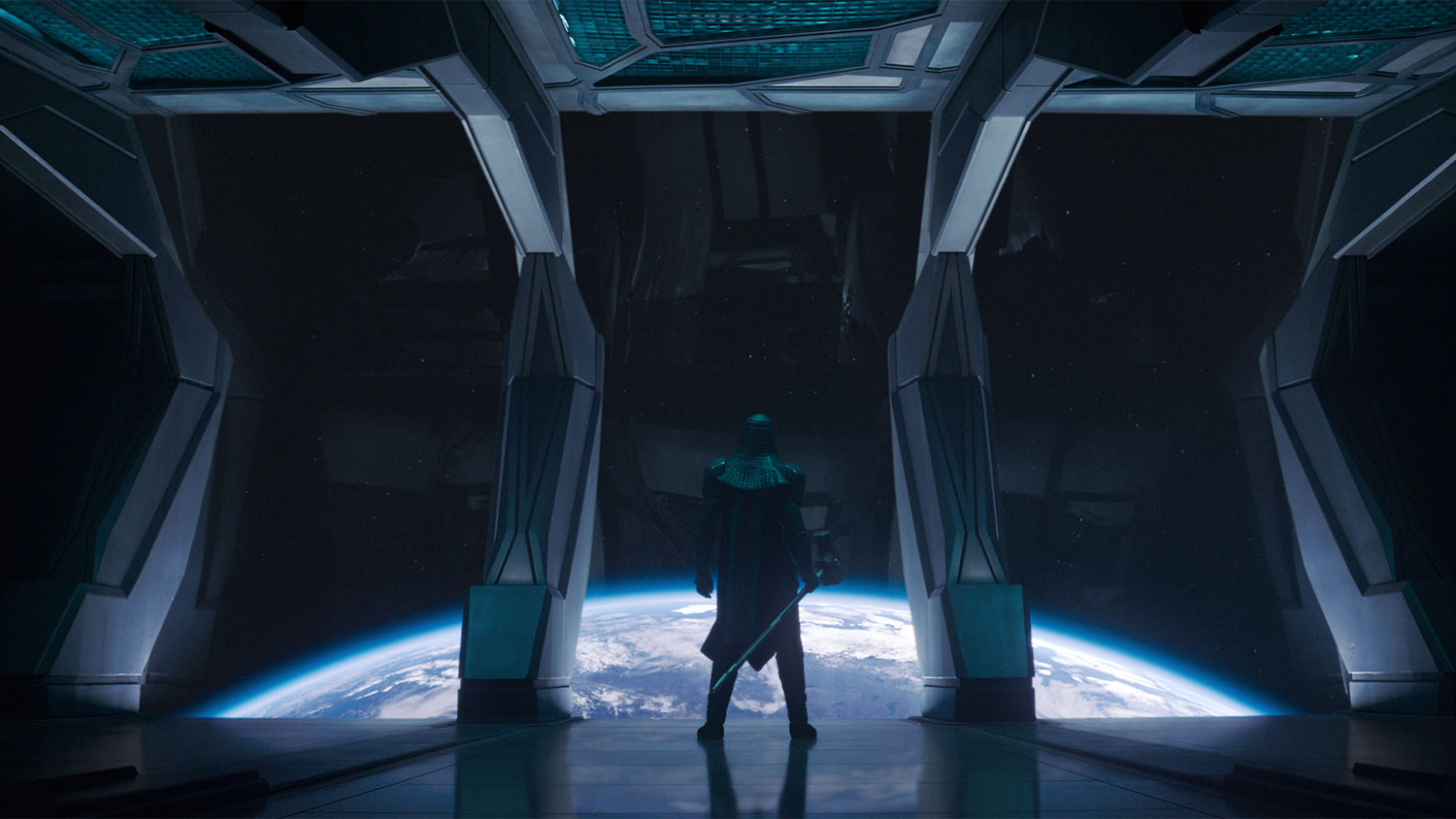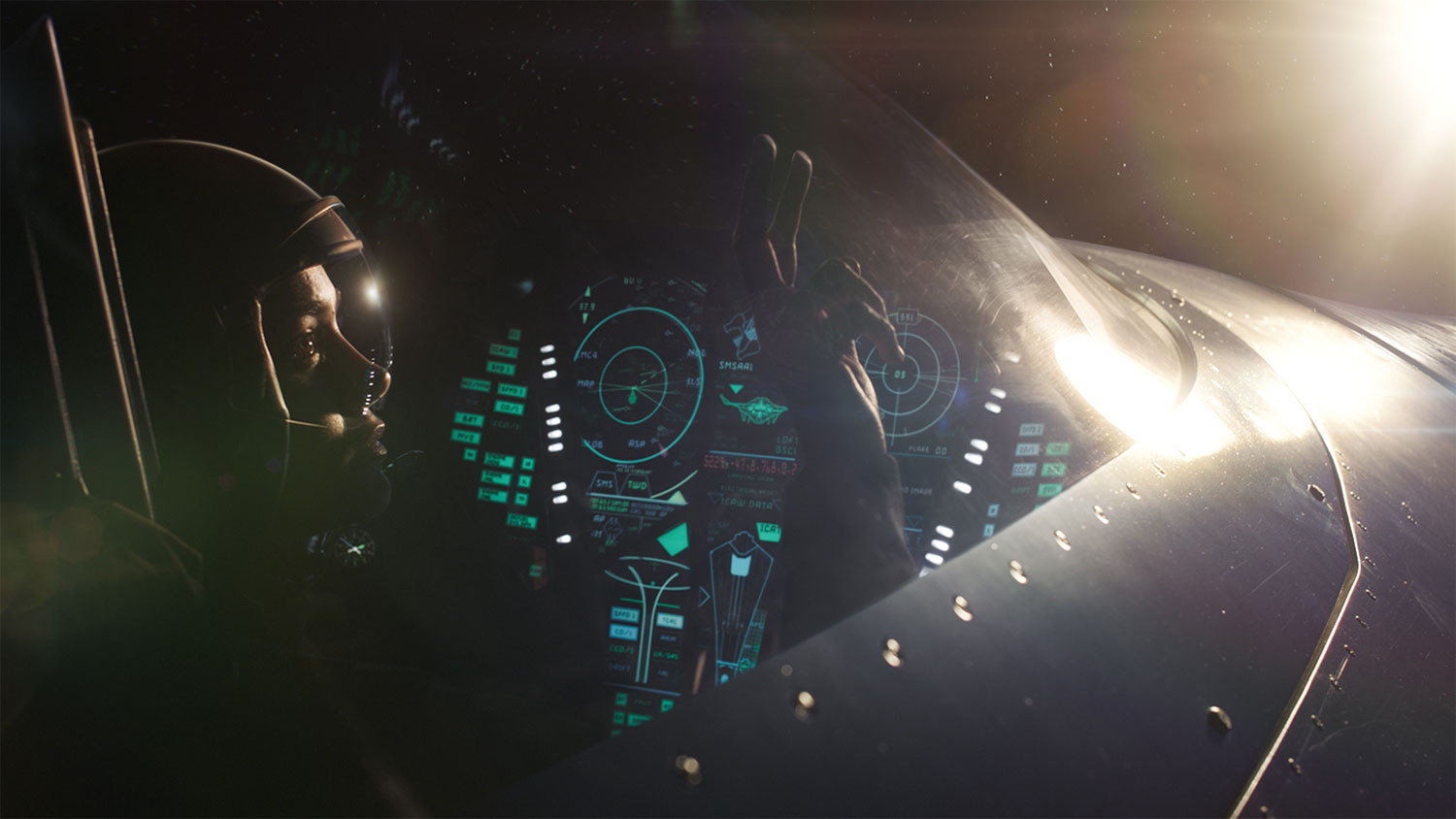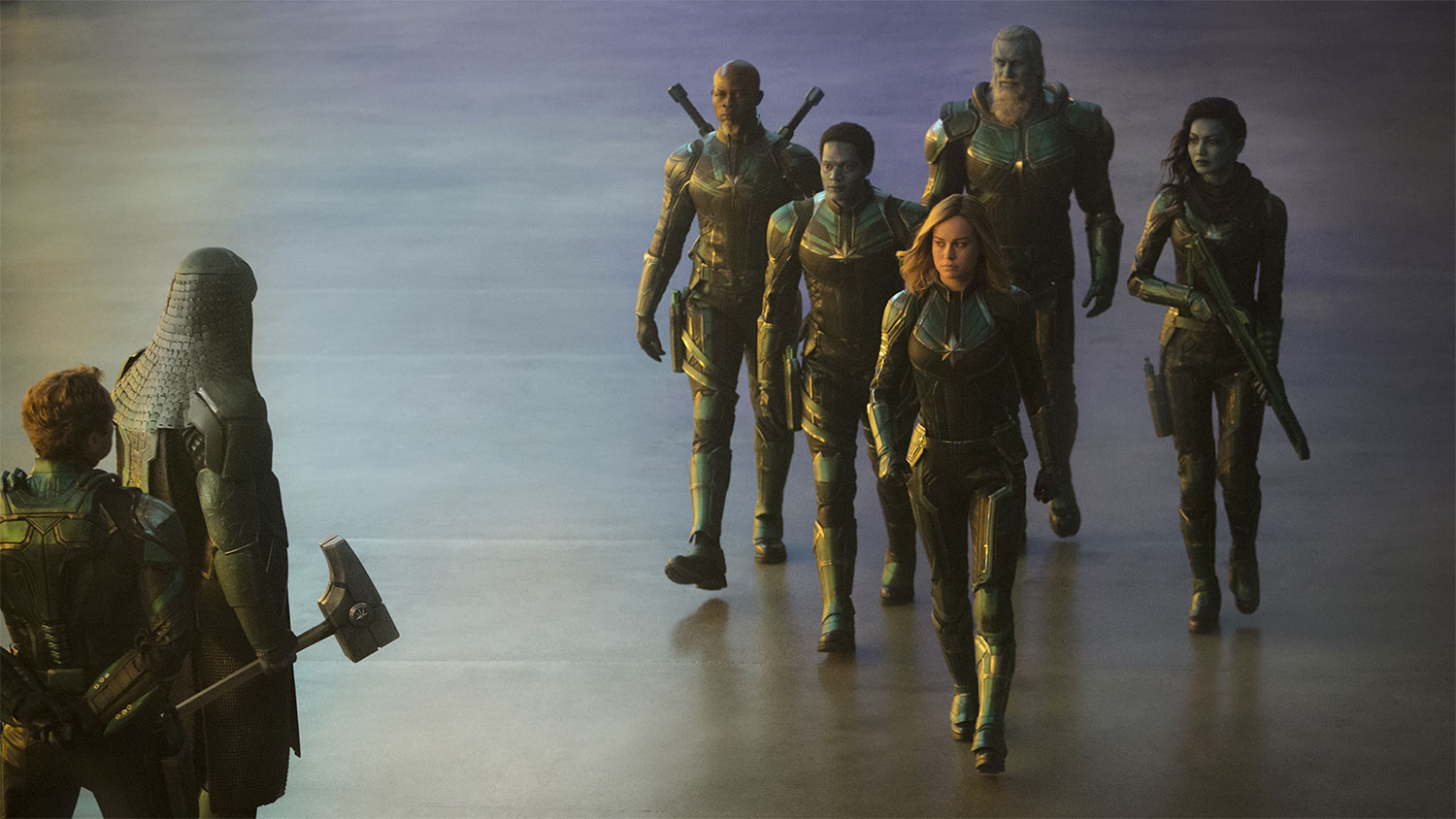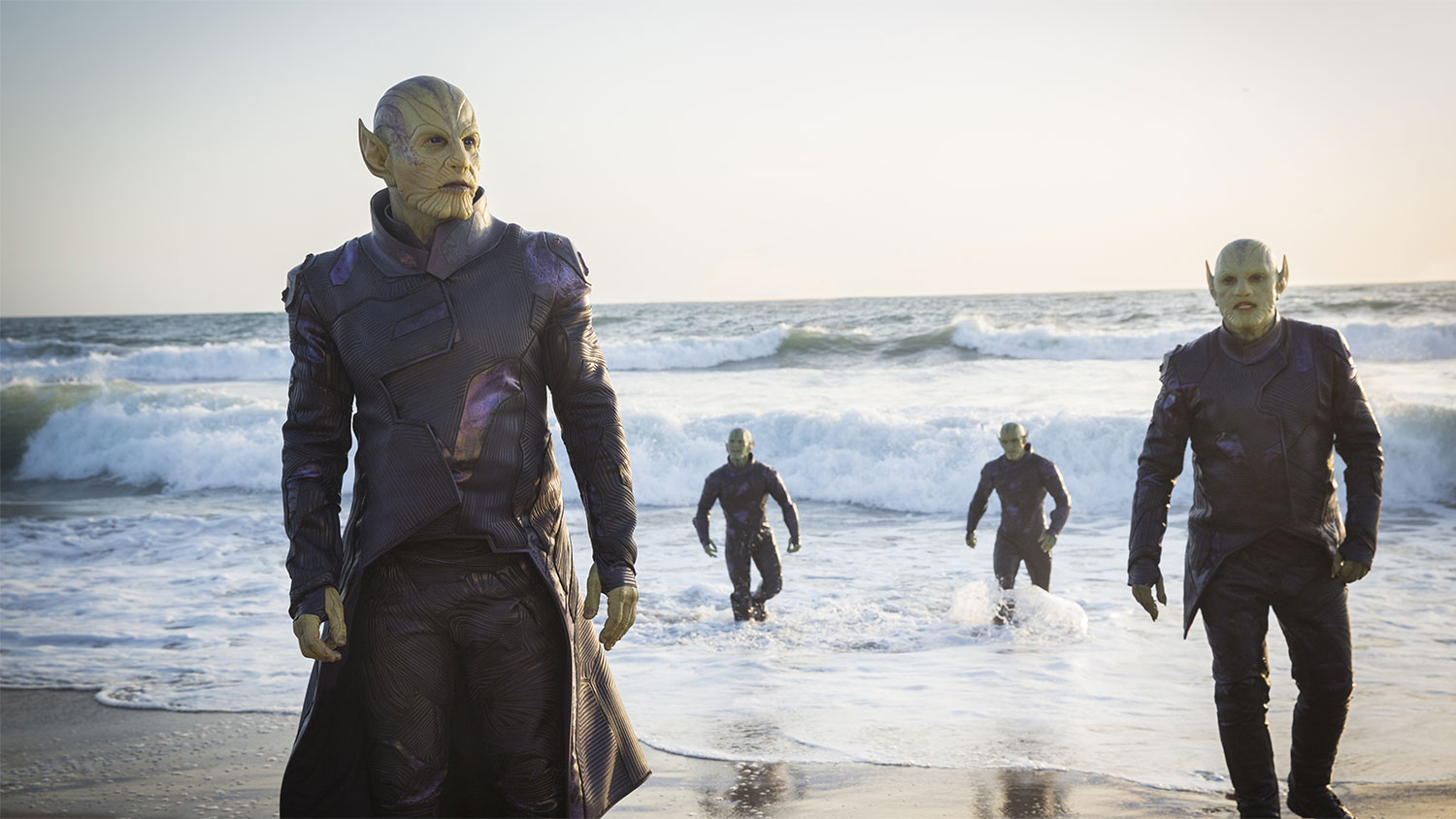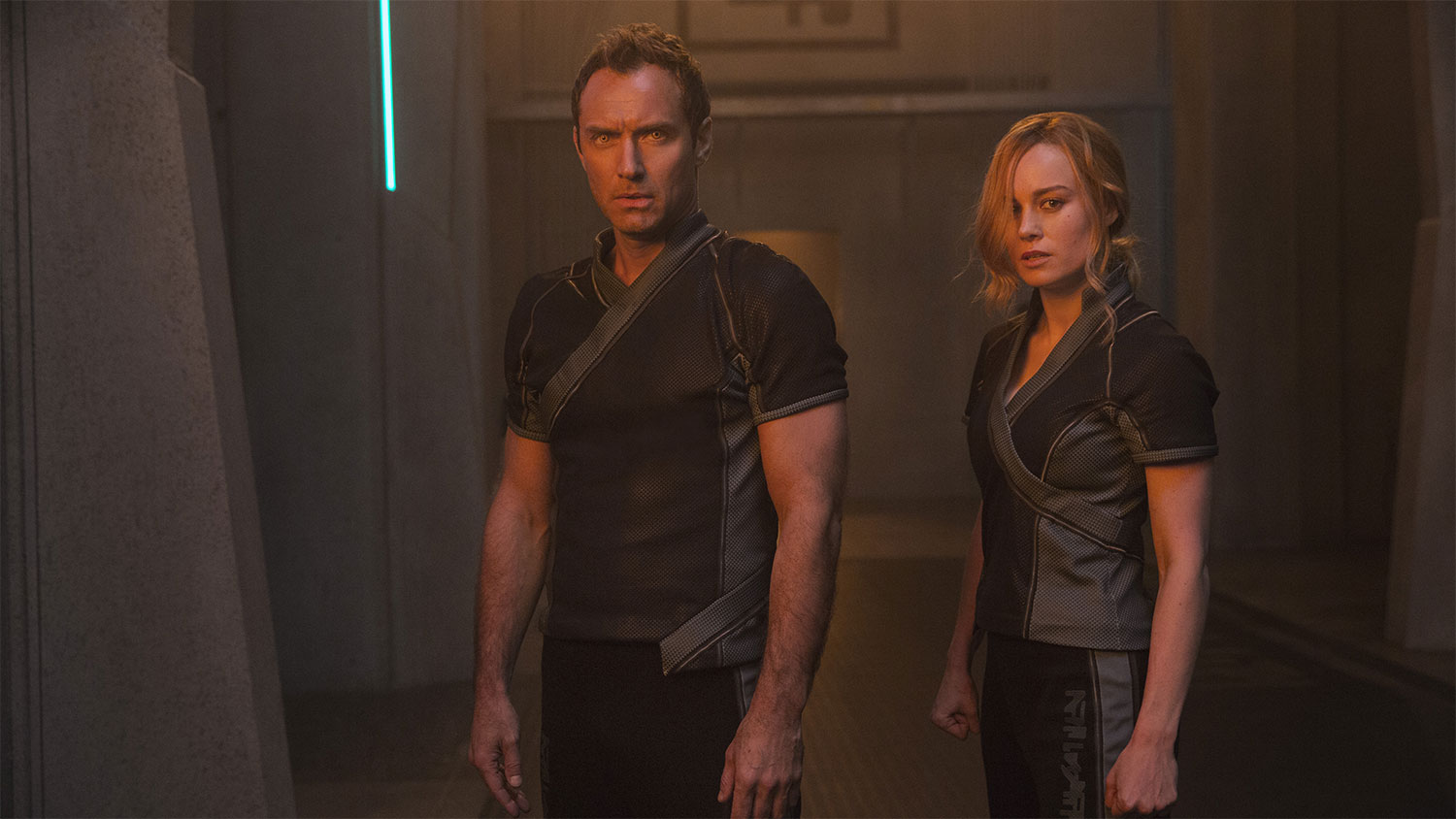Even after 20 installments of wildly successful movies that have turned the Marvel Cinematic Universe into a box-office blockbuster factory, Captain Marvel arrives in theaters as one of the studio’s most controversial, seemingly risky projects.
Not only is Captain Marvel the studio’s first female-led superhero movie, but it relies on a hero off mainstream audiences’ radar to tell a story set in the shadow of two of the MCU’s most hyped-up projects so far: Last year’s Avengers: Infinity War and its upcoming conclusion, Avengers: Endgame. It isn’t entirely apparent from the previews, but Captain Marvel also happens to be the studio’s most self-aware movie to date — a quality that can either work in a movie’s favor or against it, depending on how it’s handled.
Fortunately, Captain Marvel is a winner on all fronts, offering an exciting, thoroughly engrossing chapter of the MCU that manages to tell a compelling standalone story while also putting its stamp on the overarching MCU saga. That it does all of that while also managing to blend in some powerfully relevant social themes makes its achievement that much more impressive.
Directed by Anna Boden and Ryan Fleck from a script they penned along with Geneva Robertson-Dworet, Captain Marvel casts Academy Award winner Brie Larson as Carol Danvers, a U.S. Air Force pilot whose explosive encounter with an alien race results in her gaining powerful, superhuman abilities. The film is a prequel story set in the 1990s, with Carol recruited by the aliens known as the Kree to fight in their war with the shape-shifting Skrulls. When a mission goes awry and she ends up back on Earth, Carol’s mysterious past is revealed, and she teams up with a young Nick Fury (Samuel Jackson) to stop the Skrulls from acquiring powerful technology hidden on the planet.
Along with Larson and Jackson, the film’s cast also includes Ben Mendelsohn as the Skrull officer Talos; Jude Law as Carol’s Kree mentor, Yon-Rogg; and Annette Bening in multiple roles throughout the film. MCU veteran and Agents of SHIELD actor Clark Gregg also reprises his role as SHIELD agent Phil Coulson.
Everything from Carol’s dialogue to her posture reflects a certainty of purpose that makes her stand out from her Marvel peers.
It becomes clear early on in Captain Marvel that Larson was the right choice for the film’s titular hero — which is no small feat, given that there’s been near-constant debate over her suitability to play the character since her casting was first announced three years ago.
Unlike typical superhero origin stories, Carol isn’t a hero who finds her swagger and confidence once she gains superhuman abilities or learns a lesson about responsibility. In Captain Marvel, Carol has always had to fight to be what she wants to be — often against men telling her what her limits should be — and Larson’s portrayal of the character exudes a confidence and charisma that comes from a life of defying expectations.
Everything from Carol’s dialogue to her posture reflects a certainty of purpose that makes her stand out from her Marvel peers, who typically have to overcome crippling self-doubt or moral uncertainty before they can become the hero they need to be. There’s never a point in the film when Carol is not a hero, though — she just becomes a different kind of hero as circumstances and her awareness of them change.
Recent Movie Reviews
The subtleties of her character’s arc could easily be lost amid all of the action and spectacle of Captain Marvel, but Larson handles Carol’s evolution with an impressive level of nuance. The end result is a character that stands out from the rest of the Marvel pack in ways that have more to do with Carol’s personal journey and Larson’s compelling performance than simply her gender.
Reprising his role as Nick Fury, Jackson manages to present a version of Nick that’s appropriately familiar but still different in all the ways that his young age and lack of experience reflect. This version of Nick Fury is a bit more trusting and idealistic than the grizzled operative of The Avengers and subsequent films, and Jackson is clearly enjoying the chance to show off some new sides to the character.
Although Larson’s portrayal of Carol is the film’s defining element, Mendelsohn also delivers a standout performance as Talos. Despite his character’s shape-changing attributes, Mendelsohn’s part in the film could have easily slipped into the realm of one-dimensional foils, but the Rogue One actor injects so much flair into the character that you don’t want to see him dispatched too soon.

Captain Marvel also offers up some impressive visual effects to go along with its intriguing characters, and a story that doesn’t shy away from toying with its audience’s expectations. Given the intense, detail-oriented coverage each Marvel movie gets in the lead-up to its release, it’s a welcome surprise that many of the story’s most rewarding twists and turns weren’t spoiled during the promotional press circuit or, even worse, in the trailers and clips released by the studio.
On the visual side, Carol’s energy-blasting powers never look silly or poorly envisioned for the action, and when she finally takes full control of her abilities for a stirring outer-space battle against a fleet of warships, the sequence feels appropriately triumphant. In fact, it’s difficult not to cheer right along with Carol as she revels in her ability to dispatch one ship after another as she twists, dives, and rolls through the cosmic field of battle.
Also cheer-worthy is the ease with which Captain Marvel handles certain elements associated with the sort of toxic fandom that targeted the film in the weeks leading up to its release.
Captain Marvel simply persists in telling the great story its talented cast and creative team know they can tell, and lets the final product speak for itself.
The film does indeed feature Carol dealing with the sort of misogyny — casual or otherwise — that sadly remains part of the female experience today, but the message the movie hammers home (and the real hero’s journey that Carol makes in the film) is one of realizing your own self-worth and potential. Carol’s battle in Captain Marvel might ostensibly be against alien villains, but it’s really against the elements in her life that would hold her back from being the hero she’s capable of being.
This is new ground for Marvel Studios’ heroes, as thus far the MCU has featured protagonists who overcome physical or moral dilemmas in order to use their powers for good. For Carol to reach her full, heroic potential, however, all she needs to do is stop listening to everyone telling her what she should be or can be.
That’s an important distinction, and it’s a narrative arc that Larson and the film’s creative team execute amazingly well in Captain Marvel.
Put in the unenviable place of having to establish a new character in the midst of one of the most climactic moments in the MCU’s history, Captain Marvel succeeds as a film because it approaches its real-world situation in much the same way its hero does with the predicament she finds herself in. Instead of trying to prove its value in the MCU, Captain Marvel simply persists in telling the great story its talented cast and creative team know they can tell, and lets the final product speak for itself.
At a time when the cultural divide in Hollywood and the nation at large has never felt greater, Captain Marvel dives into the fray and emerges with a truly memorable big-screen adventure that stands toe-to-toe with the best solo features the MCU has to offer.
Editors' Recommendations
- What went wrong with The Marvels? 5 reasons why the MCU is in trouble
- The Marvels: How many post-credits scenes are there in the latest MCU movie?
- New Secret Invasion trailer makes Nick Fury a wanted man in the MCU
- Werewolf By Night review: magnificent monster mayhem
- Tár review: Cate Blanchett soars in Todd Field’s ambitious new drama

